Just received in the downthetubes dungeon is comic archivist Alan Clark‘s latest and marvellous book continuing his ongoing quest to chart the history of British comics: Comic Papers by Small Publishers 1945 – 1950.
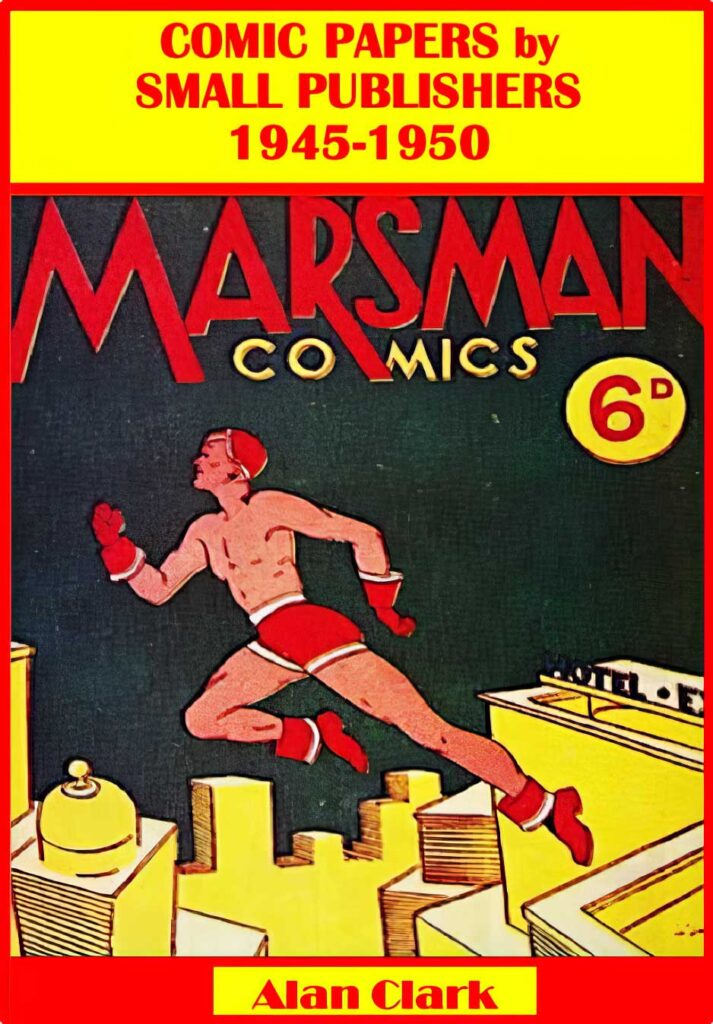
This is a short run, non-profit book, available to order as one bundled item now from his eBay store. Do note Alan lives in Italy, so although postage is listed as free, the price reflects delivery costs. Despite this, his books sell out rapidly, so if the subject is of interest, buy your copy soon!
In the 1930s, comics publishing in Britain was booming. The mighty Amalgamated Press (AP) was issuing more weeklies than it had ever done, and titles such as Comic Cuts, Funny Wonder, ‘Chips, Puck, Rainbow, Film Fun, Radio Fun and others had huge circulations.
Then came World War Two, which decimated the AP’s business. Artists, writers and editors were recruited into the Armed Forces or associated services. Rationing was everywhere, including paper, restrictions continuing for several years after the hostilities had ended. The result was that titles were cancelled, or reduced in size, a situation remained the case throughout the 1940s and much of the 1950s.
Meanwhile, things had been happening in Scotland. Dundee-based publisher, DC Thomson, which had already enjoyed success with its story papers in the 1920s such as Adventure, The Dixon Hawke Library and The Rover, became interested in publishing comics. The story papers continued, but the publisher’s comics publications started in 1936, when the firm decided to create a “Fun Section” supplement for its Sunday Post newspaper.
This in turn led to DC Thomson launching the weeklies The Dandy, in 1937, and The Beano (1938), which were sold throughout the UK.
The duo’s bright future might have arrived earlier than it did, but for the war. The conflict meant that the two titles were reduced to fortnightly publication, with reduced page counts and print runs due to wartime paper rationing. A third title, Magic, fell victim to wartime rationing.

The nation celebrated Victory in Europe in May 1945, but it wasn’t until 1950 that large publishers began ramping up their titles again, and even then, paper rationing remained in place and the Government continued to control the import of newsprint, to the dismay of newspapers and journalists.
At the annual conference the Institute of Journalists in September in 1950 a resolution was passed unanimously, describing the newsprint shortage threat to the public interest and made pointed reference to “censorship by rationing.” (British Newspaper Archive subscription required).
Despite the protests, in October 1950, rather than lifting restrictions on newspapers, a shortage of newsprint in fact forced the reintroduction of the war-time system of tonnage rationing on individual newspapers, and things didn’t improve for some time.
An editorial in the Manchester Evening News of Tuesday 30th March 1954 was not alone in accusing the Government of effectively curtailing the freedom of the Press by its actions).
The rationing and continued restrictions created a five year gap, and enterprising businessmen took advantage of it. A number of small firms began to produce irregular publications, many of them one-shots as wartime restrictions were ongoing.
Meanwhile, men and women were returning from the war which inevitably created a baby boom. Children who would soon be interested in comics.
Between 1945-1950 literally hundreds of titles were issued by anyone who could find some paper. Mostly, they had looser editorial control: scripts could sometimes be vulgar, the artwork a tad less careful, but aficionados believe this gave them a vitality and a freedom that ‘establishment’ publications didn’t have.
By the early 1950s, sometimes through clever bookwork, the big publishers were back and almost all of the small firms publications had vanished – and became, simply, a footnote in comics history, with very few of their titles to be found in the British Library, because these truly fly-by-night pirates of publishing rarely deposited them.
Comic Papers by Small Publishers 1945 – 1950 is a delightful 328-page celebration of these post-war publications, offers insight, and rare images of these ephemeral publications you’re unlikely to see in other places. It includes profiles of long-forgotten creators, such as Arthur Martin, who went on to make a name for himself drawing strips featuring comedy stars for TV Fun in the 1950s; artist Reg Perrot, who died tragically young aged just 32, in 1947, victim to throat cancer, who Alan describes as one of Britain’s greatest adventure strip artists; and The Beano artist Reg Carter, who brought its earliest cover star, “Big Eggo“, to life.
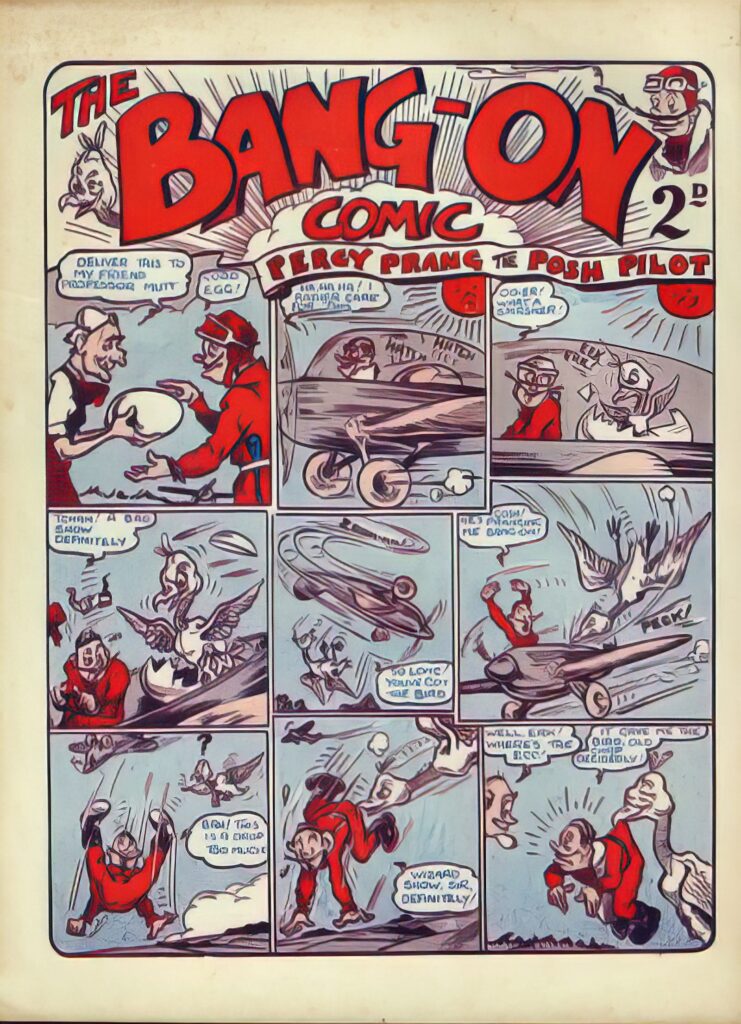
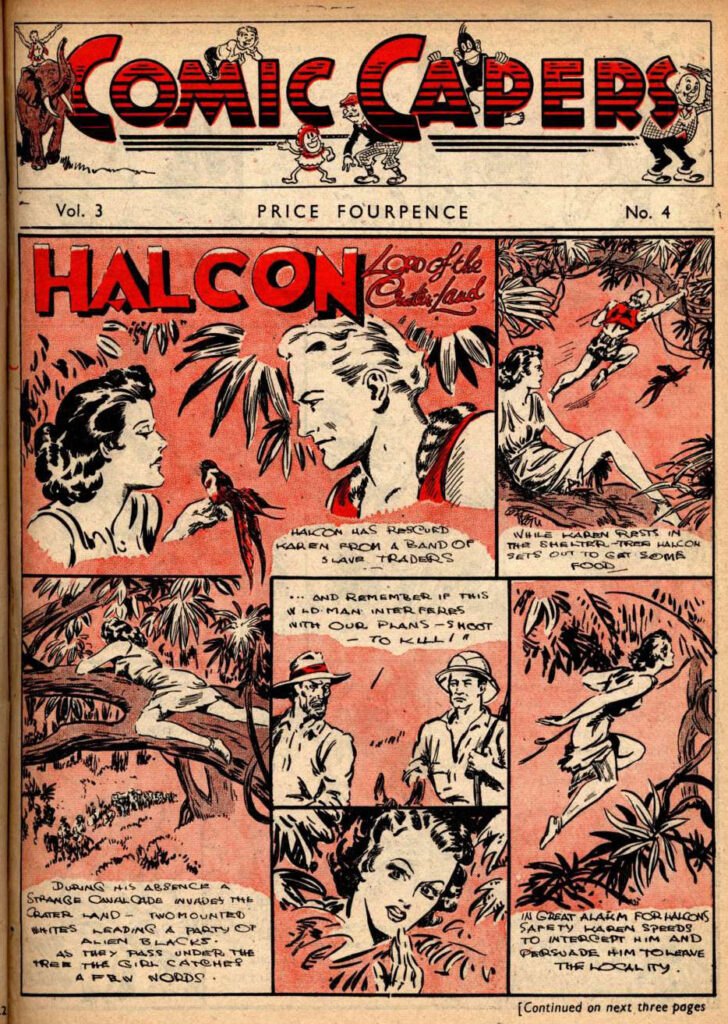
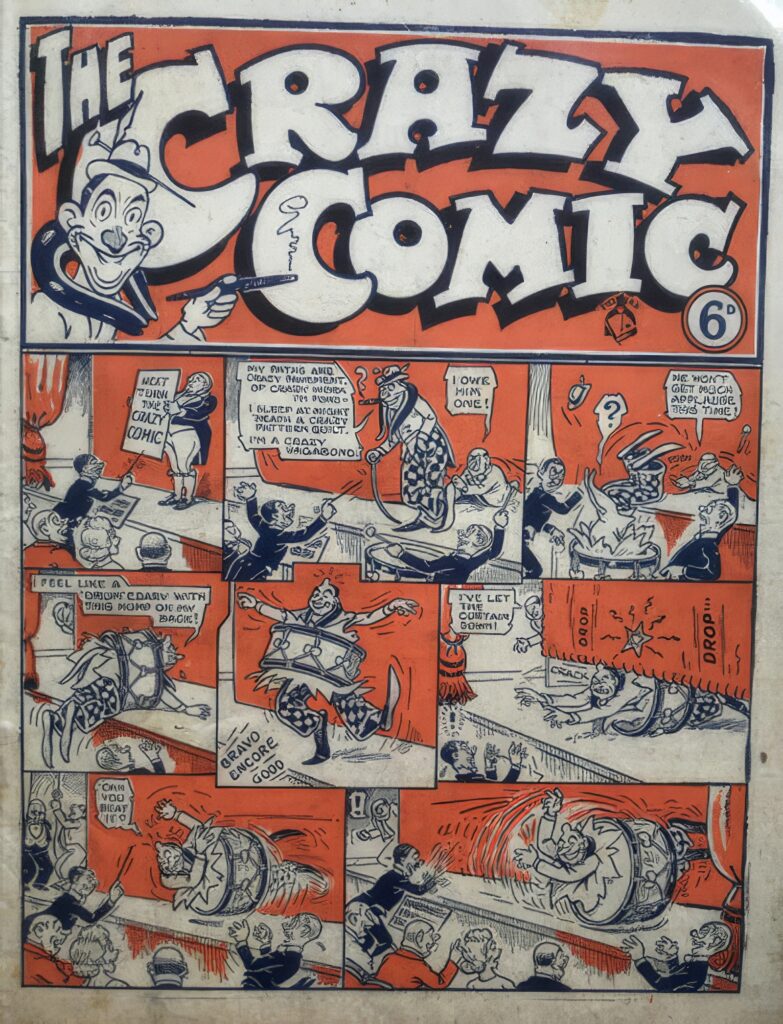
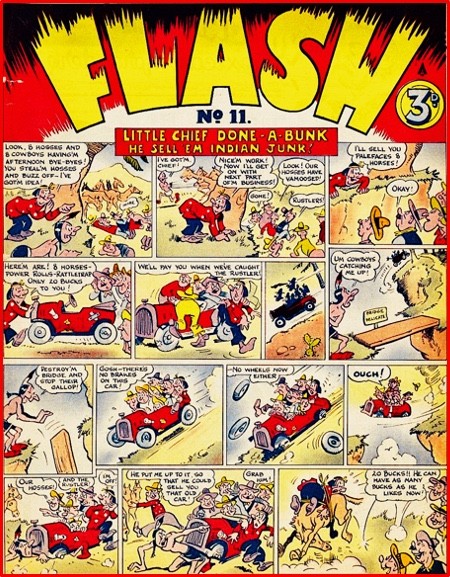
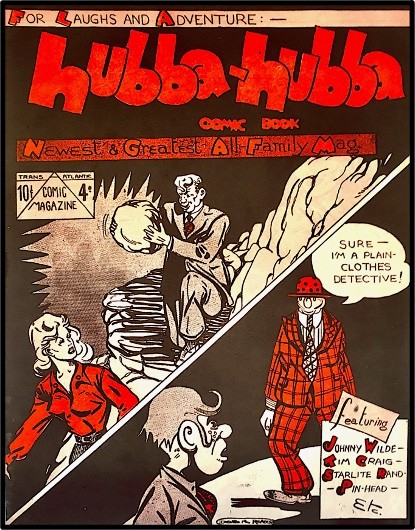
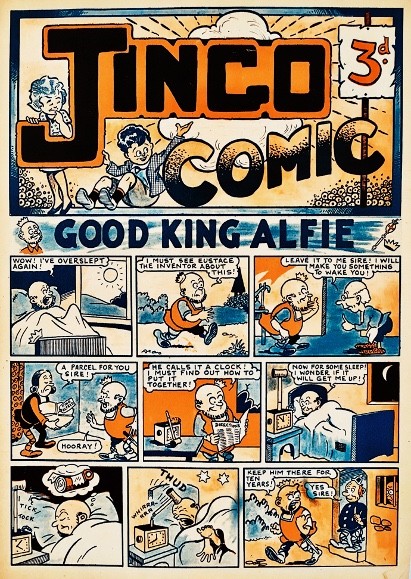
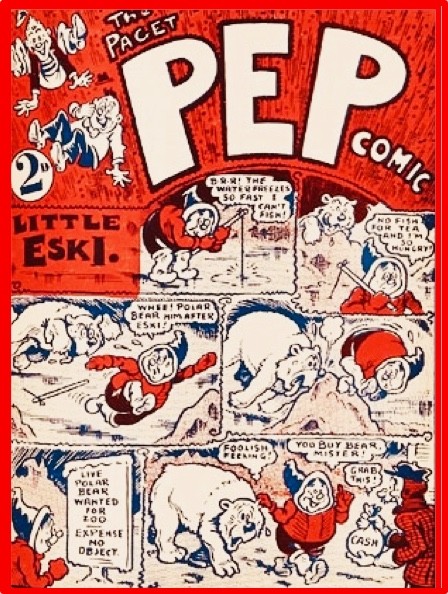
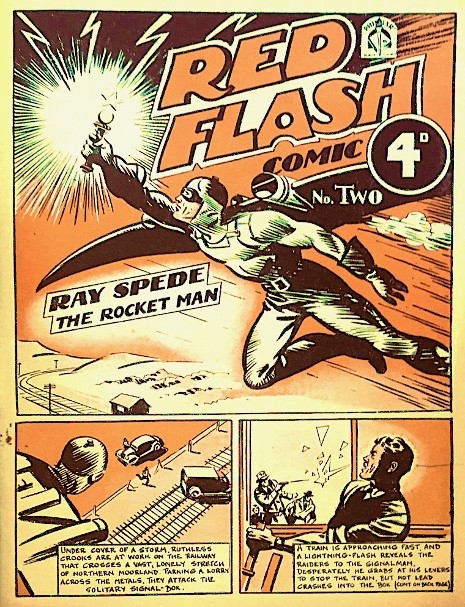
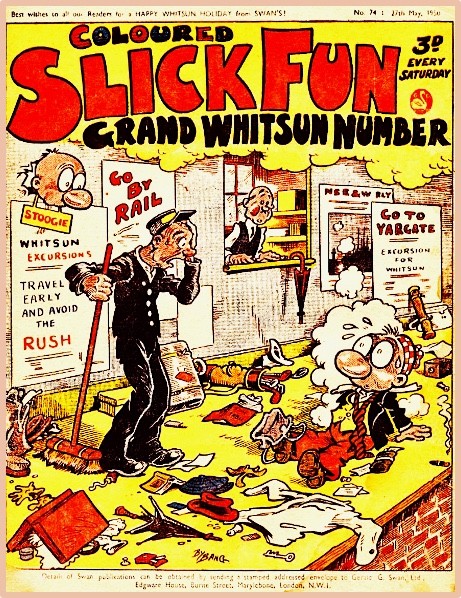
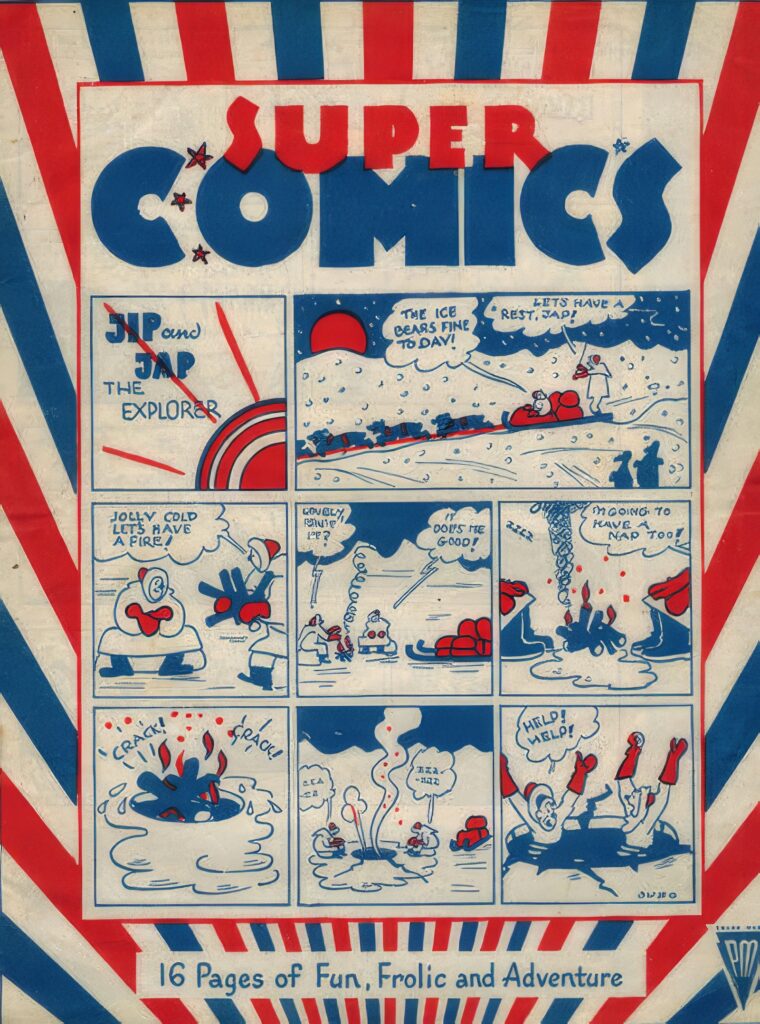
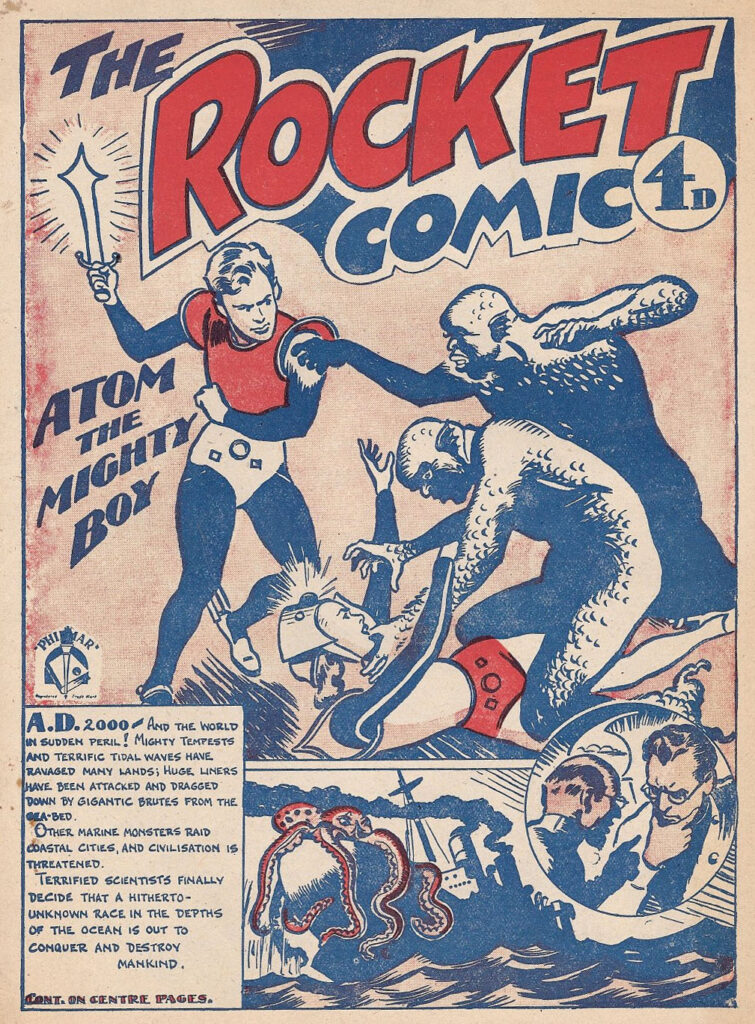
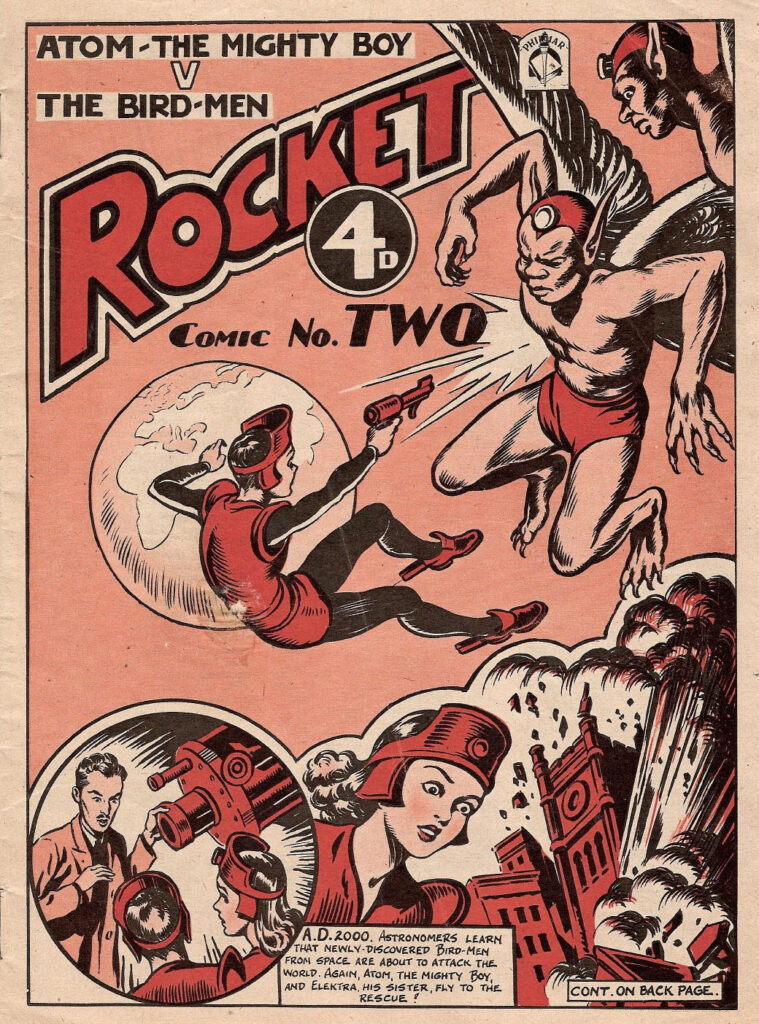
Alan also documents the origin of The Seven Stars heroes, characters such as Captain Universe and Electro Girl, reinvented as a back up strip by Alan Moore and Kevin O’Neill as a backup strip in The League of Extraordinary Gentlemen; offers profiles of many of the publishers of the period; and rounds out the book with a fascinating archive of the early work of artist and writer Reg Parlett, perhaps best known for drawing “Billie Bunter” for Valiant, and, a personal favourite, “Mowser” for Lion.
I can’t think where else you may find examples of Reg’s “Nick Cartoon, Special Agent”; they don’t even feature in Alan’s early work, The Comic Art of Reg Parlett (I just checked!)… so, for this alone, do give Comic Papers by Small Publishers your consideration!
• Comic Papers by Small Publishers 1945 – 1950 is available now from Alan’s eBay store | 328 Pages | Independently Published
Do note Alan lives in Italy, so although postage is listed as free, the price reflects delivery costs
Head downthetubes for…
• The Journal of Publishing Culture: How did Publishers Respond to the Restrictions Placed on Them by the Outbreak of World War Two? by Zoe Thomson (PDF)
• Wikipedia: Rationing in the United Kingdom
• Hansard: Paper (Rationing) – Volume 377: debated on Thursday 8 January 1942
• On downthetubes: Comic Character Spotlight: Billy Bunter
• Lambiek Profile: Reg Parlett
Featured Comics
• Grand Comics Database: Fudge (Publisher) – for more information on The Bang-On Comic
• Read Comic Capers (in the public domain) on Comic Book +
• Grand Comics Database: Forshaw (Publisher) – for more information on The Bang-On Comic
• Grand Comics Database: Paget
• Grand Comics Database: Gerald G. Swan – for more information on Coloured Slick Fun
• Grand Comics Database: Philipp Marx (PM Productions) – for more information on The Crazy Comic, Flash, Super Comics, Red Flash Comic and Rocket Comic
Categories: Books, British Comics, Comics, Creating Comics, downthetubes Comics News, downthetubes News, Features, Other Worlds, Reviews
 In Review and Behind the Scenes: The Fantastic Art of Ron Turner
In Review and Behind the Scenes: The Fantastic Art of Ron Turner  A British Science Fiction Catch Up with Philip Harbottle: Tales of Wonder, Golden Amazon and much more
A British Science Fiction Catch Up with Philip Harbottle: Tales of Wonder, Golden Amazon and much more  In Review: Comic Papers Between The Wars Books One and Two by Alan Clark
In Review: Comic Papers Between The Wars Books One and Two by Alan Clark
It’s actually free postage on EBay!
Noted and article amended, thanks. Although postage is listed as free, I do suspect, though, that the price reflects delivery costs. It’s still very much worth it, though, in my opinion, although now the Italian postal service insists on boring printed labels I do miss receiving Alan’s parcels covered in wonderful stamps!
Yes, John the price includes delivery costs! Also re: the price eBay insists on classifying me as a business something to do with multiple items of the same thing so I must be a business. This means a hefty charge (£8 a copy) which again comes out of the price. And STAMPS: the post office here doesn’t allow them on anything but letters now. A pity, as there are new stamps with beautiful designs every month! This, apparently, is down to technology which insists on printed labels.